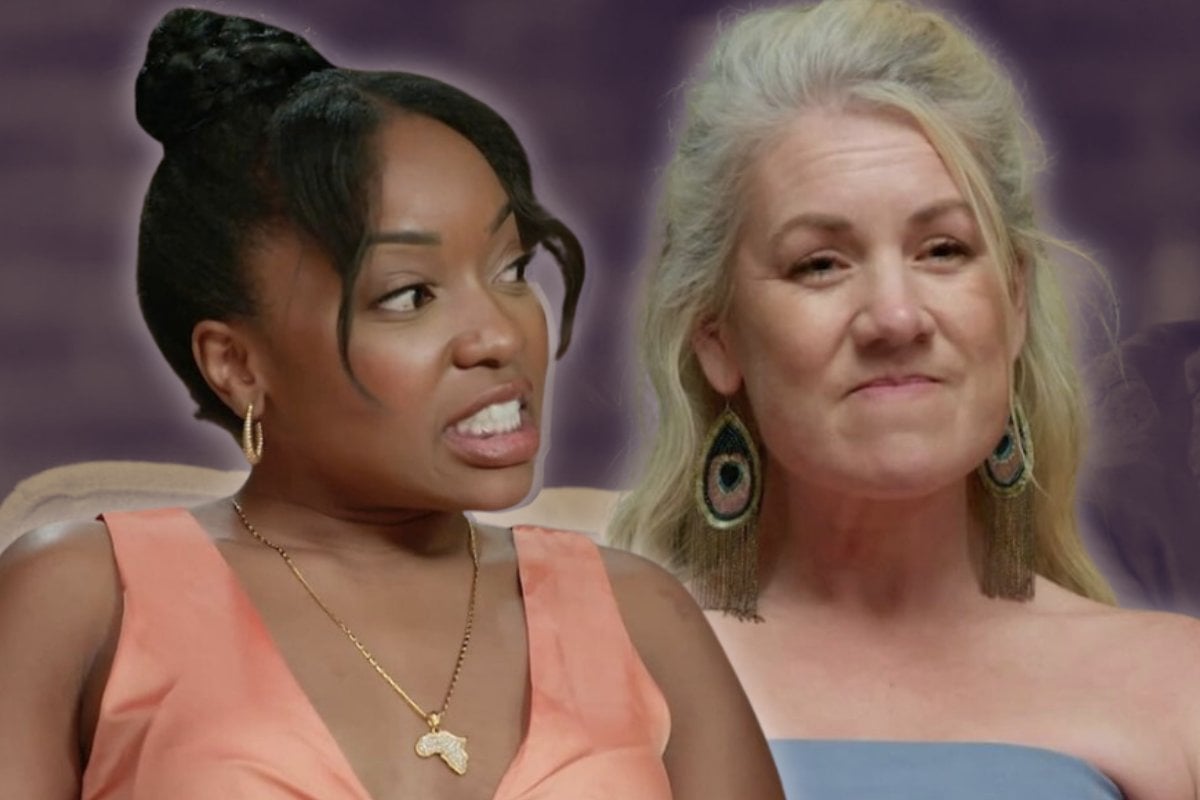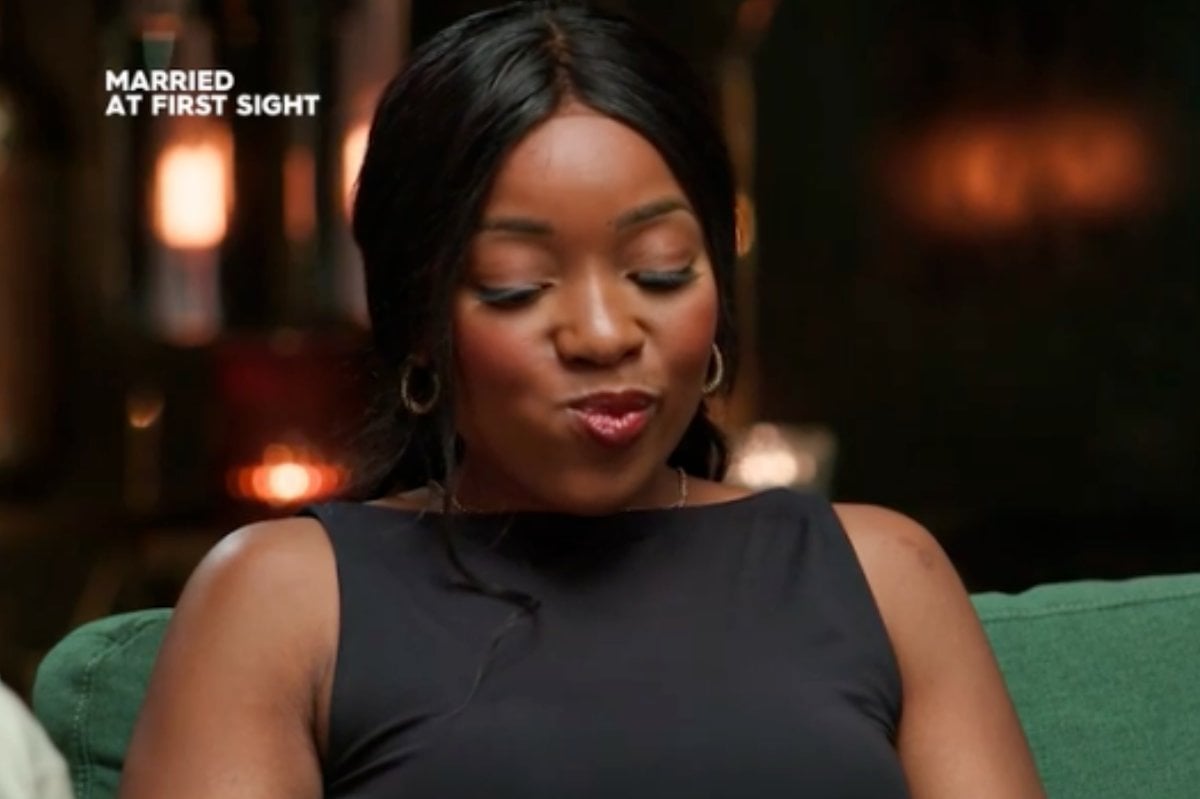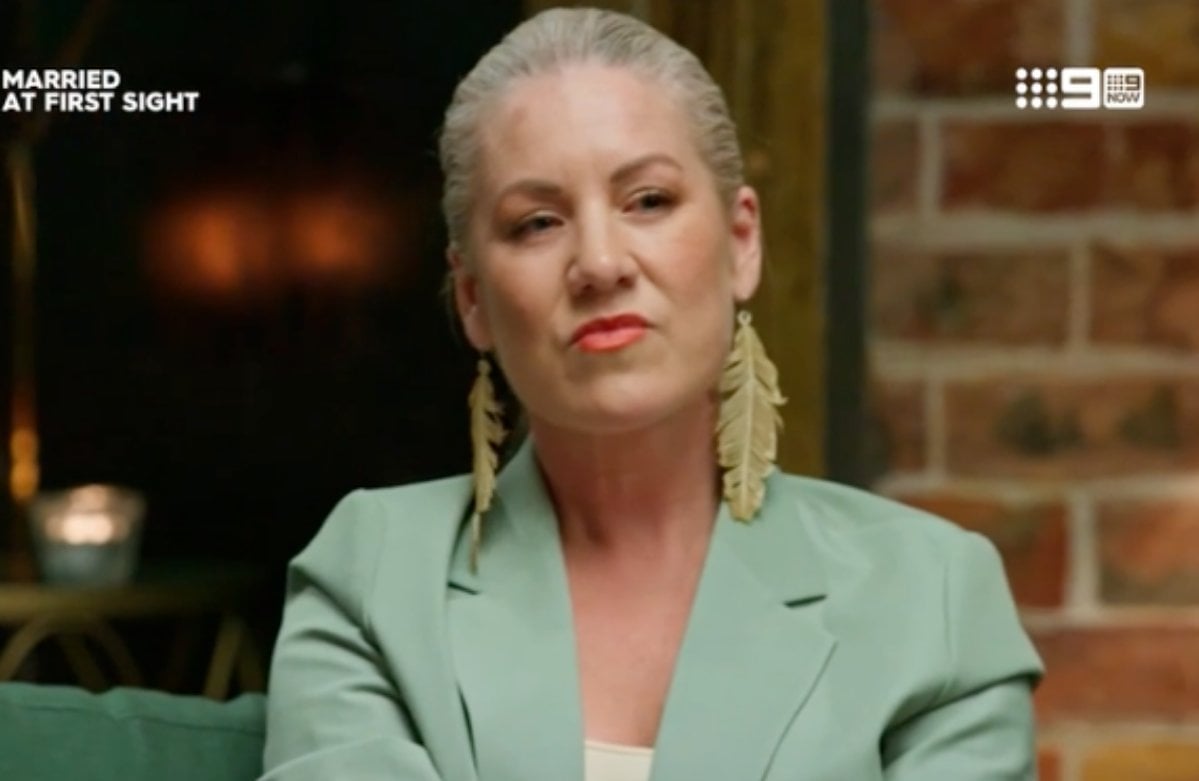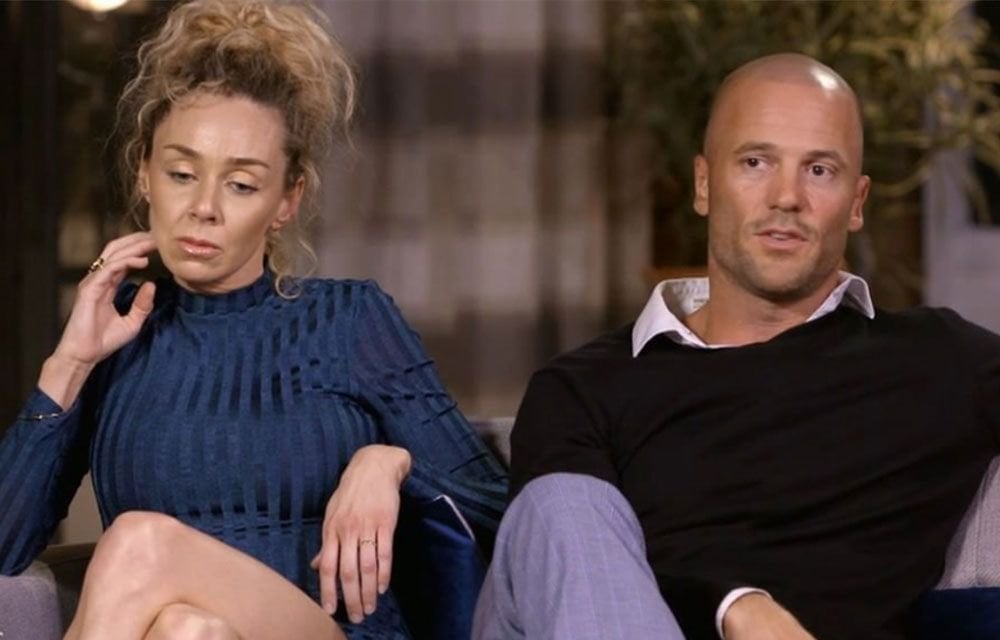
Men will literally go on reality TV before going to therapy.
This isn't a joke. It's a sad reality.
Married At First Sight is just one of a plethora of reality dating shows that match unsuspecting singles, hoping for the chance at true love. Sure, some are in it for the fame — but some truly want their happily ever after.
But what MAFS does better than most reality shows is hold a mirror up to the pitfalls of contemporary dating — and we're currently seeing a dynamic play out on the show that, unfortunately, countless single women know all too well.
Put simply, some of the men on this season are not ready to be dating. (Let alone fake married.)
The issues these men are grappling with span mental health, body confidence, and even navigating grief following the loss of a family member. Yet it's the women they're matched with who bear the burden of helping them through their troubles.
Instead of signing up for marriage, the brides in question seem to have been brought in for a little project management.
Two couples, in particular, have been thrust into this dynamic thanks to the pairing choices of the show's relationship experts this year.
Cassandra Allen and Tristan Black have struggled since they wed at the start of the experiment several weeks ago.
Cass is a 29-year-old admin officer from Queensland who is bubbly and outgoing. Tristan is a 30-year-old events manager from New South Wales, who is also bubbly and outgoing, but who carries a host of self-esteem issues.




Top Comments